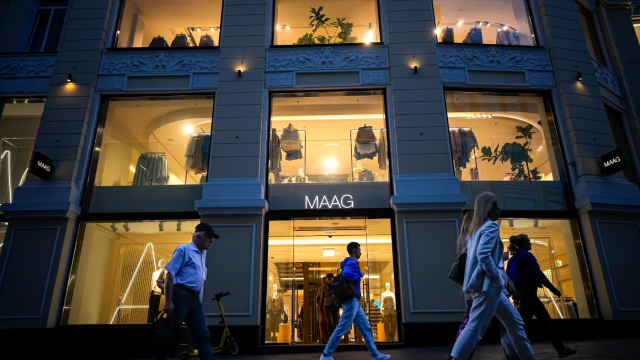Russia’s economy is better than expected, but not out of the woods

To what extent do sanctions work when dealing with noncompliant countries?
Reports that Russia’s economy is doing better than anticipated two years after the United States and the European Union placed broad sanctions on it have reignited discussions of this topic.
The actions included capping the price of Russian oil exports and goods, restricting the central bank’s usage of dollars and euros, and freezing Russia’s gold and foreign exchange reserves. According to the Carnegie Endowment for International Peace, Russia had more sanctions in 2022 than North Korea, Iran, and Cuba put together, totaling over 13,000 limitations.
Many commentators initially predicted that Russia’s economy would suffer severe damage. The most obvious sign was the sharp decline in the value of the ruble between March and June 2022. After the European Union placed a price restriction on Russian oil exports, the ruble recovered in the second part of the year before weakening once more in the early months of 2023.
In 2022, Russia’s real GDP shrank by 2%, and analysts in the West predicted that it would shrink even more in 2023. Rather, the economy grew at a rate faster than most Western economies, by over 3 percent. Furthermore, the IMF recently increased its prediction for this year from 1.5 percent to 2.6 percent.
Russia’s impressive performance is frequently attributed to its ability to largely evade the effects of sanctions.
According to Anne Krueger, a former first deputy managing director of the IMF, the sanctions created a number of middlemen that essentially served as “laundromats” for Russian oil and other products. Furthermore, oil prices did not drop below $60 per barrel and have remained considerably above that level for the majority of the time, even though oil traders were compelled to obtain tankers with appropriate insurance coverage.
According to Krueger, the burden on the nations applying sanctions rises over time, while the effectiveness of the measures tends to decline. One possible consequence is that, in a process known as “de-dollarization,” the dollar’s standing in global banking may gradually decline.
According to research coauthored by Yale University’s Jeffrey Sonnenfeld and Steven Tian, the penalties weren’t as ineffective as people thought. They list a number of ways they have harmed Russia’s economic potential, such as a loss of financial wealth, a large-scale capital flight, a brain drain from the exodus of human talent, the loss of Western technology and know-how, the withdrawal of foreign direct investment, the loss of the ruble as a convertible currency, and restricted access to international capital markets.
The fact that Putin’s policies have placed Russia on a combat footing provides another explanation for its resiliency. The budget for defense spending in 2023 more than doubled to over $100 billion, almost one-third of all governmental spending. According to estimates from the Russian Finance Ministry, the fiscal boost associated to the conflict over the last two years amounted to almost 10% of GDP.
Top Russian economists are worried that the increase in public spending could lead to an overheated economy and faster-than-expected inflation, which is now running at 7%. In the past, technocrats from the central bank and ministry of finance guided the economy through financial crises by controlling inflation, increasing foreign exchange reserves, and limiting new expenditure.
Putin has a more optimistic view. According to the World Bank’s GDP rankings by buying power parity, Russia’s economy is currently larger than that of all but two Western nations, he claimed in a recent address in Tula, the epicenter of the country’s armaments sector. Putin feels that if the war drags on, he will have the upper hand since Western democracies find it more difficult to remain steadfast.
But the strength of Russia’s economy is not as great as some observers believe. According to reports, a two-year moratorium on bankruptcies was lifted in response to growing interest costs, which led to a 57 percent increase in business bankruptcies in the first two months of this year compared to the same period last year.
It’s also important to remember that sanctions were put in place as a result of Russia’s invasion of Ukraine, which was one of the most audacious assaults on a sovereign state since the conclusion of World War II. Because of this, the United States and its allies in the West needed to make it clear to Russia what kind of repercussions it would suffer. Specifically, a nation is not entitled to the advantages if it disregards the international order’s regulations.
I agree with what former Senator John McCain (R-Ariz.) said regarding Russia’s actions following its takeover of Crimea in early 2015. He referred to Russia as “a gas station masquerading as a country” in an interview with CNN.
“Economic sanctions are important because it’s a country whose economy is largely dependent on oil and gas,” he said.
According to Elina Ribakova of the Peterson Institute for International Economics, McCain’s analysis has been updated. She states that the Russian economy is currently comparable to a gas station that has begun manufacturing tanks.
Russia is therefore extremely vulnerable to a drop in energy prices or to a reduction in output in other sectors of the economy as a result of increased production of military weapons.
Vladimir Putin is fully aware of this, and following this weekend’s national elections, it is said that he would likely increase taxes on businesses and high-income individuals. As a result, the entire tale of Russia’s tenacity remains untold.
